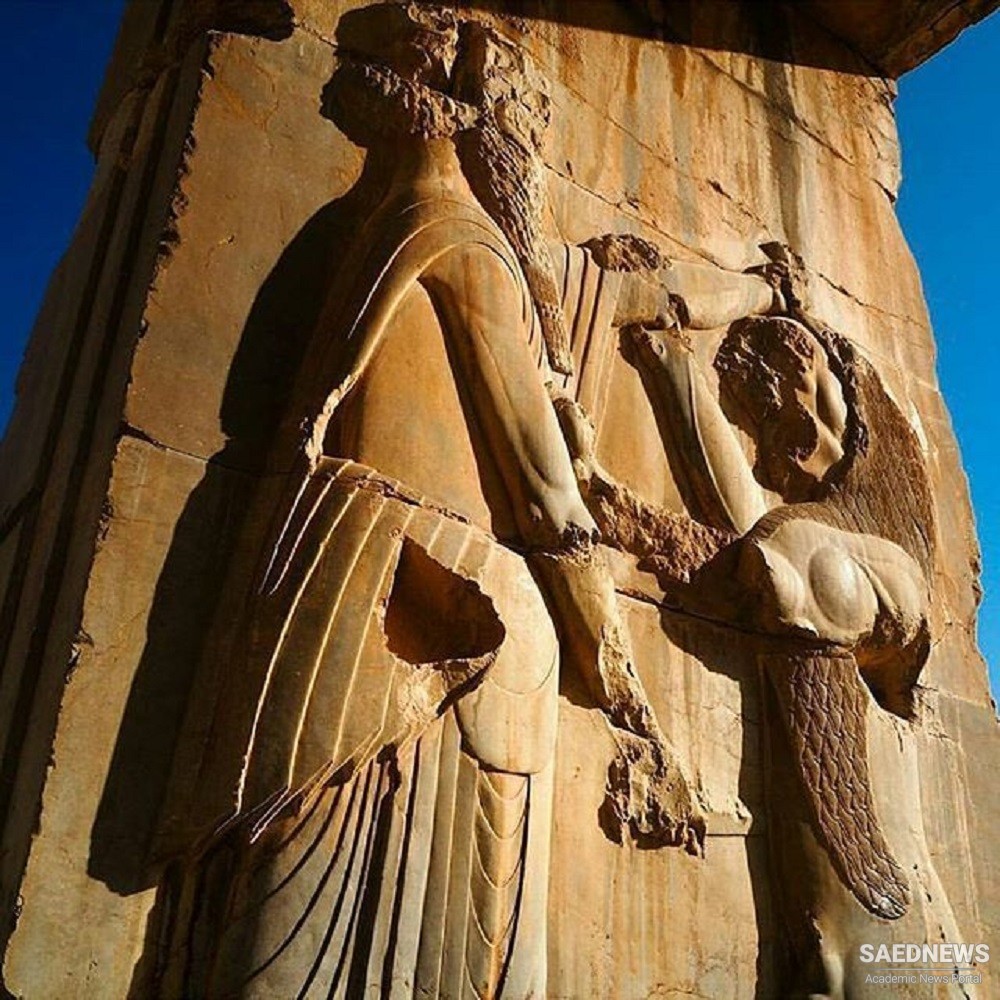Wholeness and Non-dyingness; these two refer to the fact of not having defects and blemishes and not dying before one’s time. They represent the desired state of the world and are generated by the sacrifice. In both the Old and Young Avestan texts, they can be used to refer to water and plants, whose protectors they are said to be in the Pahlavi texts. The sacrificial fire, belongs to Ahura Mazda (in the Young Avesta it is the son of Ahura Mazda), the messenger who goes between the worlds of thought and of living beings, bringing the offerings of the worshiper to the gods and the gifts of the gods to the worshiper (see on the Ritual). In the Young Avesta, sacrifices and worship are offered to a number of deities, among them Mithra, the sun god; Anahita, the heavenly river; Vayu, the god of the intermediate space between the spherical heaven and the earth suspended in its center; Tishtriya, the Dog Star, who fights the demon of Drought to release the rains; etc. Ahura Mazda’s opponents are the cosmic Deception, or the Lie (drug, druj), and her principal agent, the Evil Spirit (Angra Manyu, literally, “the dark, black spirit/inspiration”?), whose creations and followers tell lies about Ahura Mazda and his Ordered universe. They are therefore said to be “filled with/possessed by the Lie, Lieful,” (drug-want). When Ahura Mazda established the Ordered universe, sunny and healthy, the Evil Spirit in turn polluted it with all kinds of evil things, darkness, death, sickness, etc. The agents of the Evil Spirit are the old (Indo-Iranian) gods, the daêwas, or demons (OPers. daiva, OInd. deva). These are the old Indo-Iranian (and Indo-European) celestial gods, who were demoted in Iran, where they were assigned to the world governed by the Lie. In the myth, their demotion was caused by their making the wrong choices. This feature in particular distinguishes Zoroastrianism from Indic (and Indo-European) beliefs, and the fact that the Avestan daewas and Old Persian daivas are no longer beneficent heavenly beings, but rather the agents of chaos, deception, and evil, has been explained by scholars variously. Most commonly, it has simply been assumed that the reversal of the fortunes of the daewas was the work of a single man and due to a conscious and planned departure from earlier beliefs. That man, they decided, must have been Zarathustra, and the “new” beliefs must have been part of his “reform” of the traditional religion.


 Apollo Kills Python: Eternal Strife of Good vs. Evil
Apollo Kills Python: Eternal Strife of Good vs. Evil














































